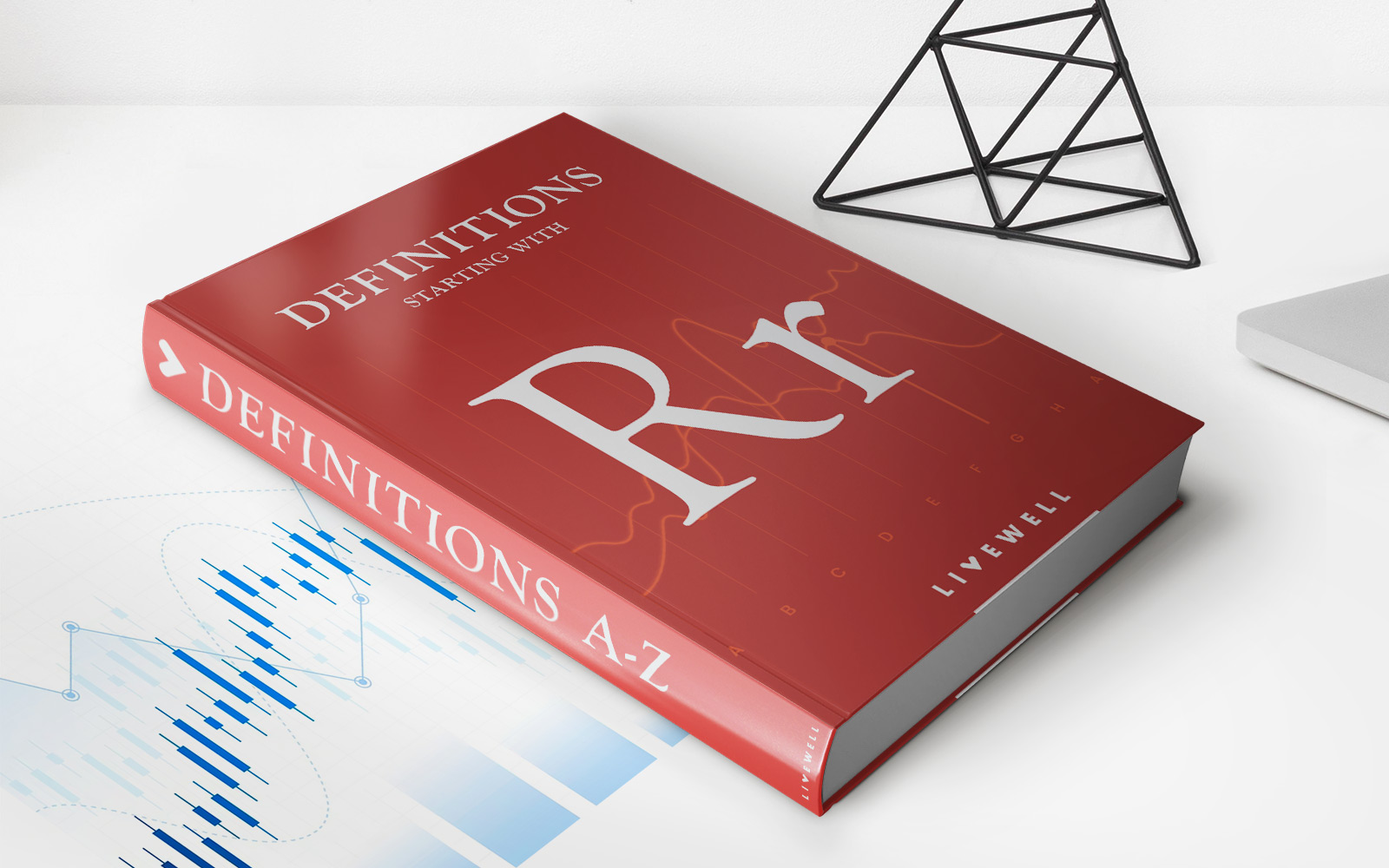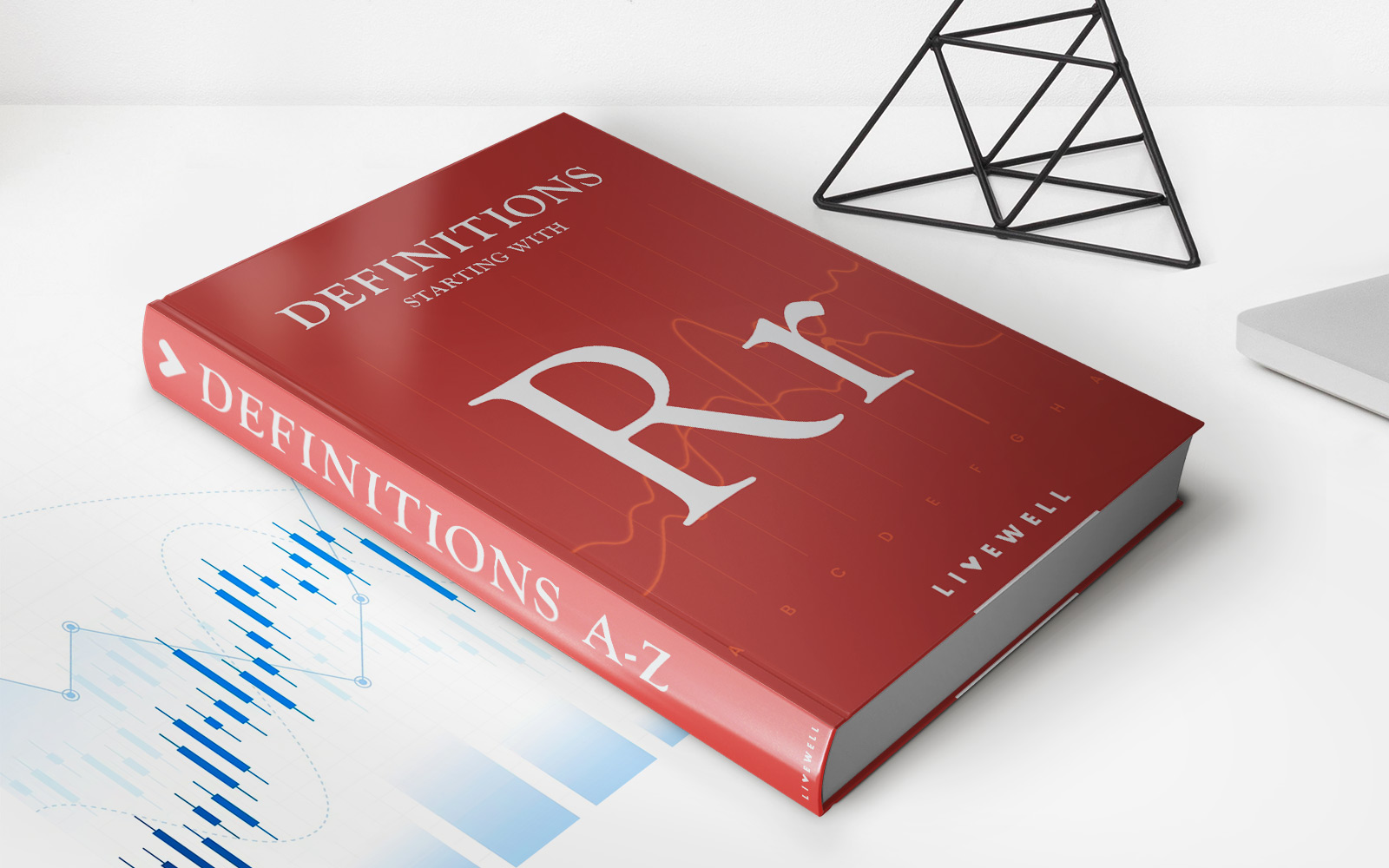Home>Finance>How Long Does Renters Insurance Take To Pay Out?


Finance
How Long Does Renters Insurance Take To Pay Out?
Modified: February 21, 2024
Wondering how long renters insurance takes to pay out? Learn about the timeline for receiving financial coverage and claims for your belongings. Finance your peace of mind with renters insurance.
(Many of the links in this article redirect to a specific reviewed product. Your purchase of these products through affiliate links helps to generate commission for LiveWell, at no extra cost. Learn more)
Table of Contents
Introduction
When renting a home or apartment, it’s crucial to protect your belongings from unforeseen events such as theft, fire, or natural disasters. This is where renters insurance comes into play. Renters insurance is a type of insurance policy designed specifically for tenants, offering coverage for personal belongings and liability protection.
In the event of a covered loss, renters insurance can provide financial assistance to replace or repair damaged or stolen items. However, one question that often arises for those who file a claim is how long it takes for the insurance company to pay out. The timing of renters insurance payouts varies depending on several factors, which we will explore in detail in this article.
Understanding the process and timeframe of renters insurance payouts can help you manage your expectations and ensure a smooth claims process if you ever need to file a claim. Whether it’s a minor incident or a significant loss, having a clear understanding of how long it may take to receive your payout can give you peace of mind during a potentially stressful time.
In this article, we will delve into the world of renters insurance and discuss how it works, the factors that affect the payout time, what you can do to expedite the process, and offer tips to ensure a smooth insurance payout experience. Let’s get started by understanding the basics of renters insurance.
What is Renters Insurance?
Renters insurance is a type of insurance policy specifically designed to protect individuals who are renting a home or apartment. It provides coverage for personal belongings and liability protection in the event of damage, theft, or liability claims.
Unlike homeowners insurance, which covers the physical structure of the property, renters insurance primarily focuses on the tenant’s personal possessions. This can include furniture, electronics, clothing, jewelry, and other valuable items. In the event of a covered loss, such as a fire or a burglary, renters insurance can help with the cost of repairing or replacing these belongings.
An essential component of renters insurance is liability protection. This coverage helps protect tenants from legal and financial responsibility if someone is injured on their property and files a lawsuit. It can help cover medical expenses, legal fees, and potential settlement costs. Having liability protection can provide you with peace of mind and protect your finances from unexpected accidents.
Renters insurance policies typically have three main components:
- Personal Property Coverage: This covers the cost of repairing or replacing personal belongings in the event of damage or theft. It’s essential to accurately estimate the value of your possessions to ensure you have adequate coverage.
- Liability Coverage: This protects you in case someone is injured in your rented property and files a lawsuit against you. It can also cover damages caused by you or your family members to someone else’s property.
- Additional Living Expenses Coverage: If your rented home becomes uninhabitable due to a covered event, this coverage can help with temporary living expenses, such as hotel stays or rental costs, until your home is ready to be occupied again.
Keep in mind that renters insurance policies can vary depending on the insurance company and the specific coverage options you choose. It’s crucial to read and understand the terms and conditions of your policy to ensure you have the appropriate coverage for your needs.
How Does Renters Insurance Work?
Renters insurance works by providing financial protection to tenants in the event of covered losses, such as theft, fire, vandalism, or water damage. Understanding how renters insurance works is essential for tenants to maximize their coverage and navigate the claims process effectively.
Here’s a breakdown of how renters insurance typically works:
- Selecting Coverage: Before purchasing renters insurance, it’s important to assess your personal belongings’ value and determine the level of coverage you need. Insurance companies offer different coverage limits and deductible options, so you can customize a policy that fits your specific requirements.
- Paying Premiums: Like any insurance policy, renters insurance requires the payment of regular premiums. Premiums are typically paid monthly or annually, depending on your preference. The cost of renters insurance can vary depending on factors such as location, coverage limits, deductible, and your insurance history.
- Filing a Claim: If you experience a covered loss, you will need to file a claim with your insurance company. This involves notifying your insurance provider about the incident and providing documentation, such as a police report or evidence of damage. It’s important to contact your insurance company promptly after a loss to initiate the claims process.
- Evaluating the Claim: Once your claim is filed, an insurance adjuster will evaluate the extent of the damage or loss. They will assess the documentation you provided and may conduct an inspection of the property if necessary. The adjuster will determine if the claim falls within the parameters of your policy and calculate the amount that will be reimbursed.
- Payout and Reimbursement: If your claim is approved, the insurance company will issue a payout based on the coverage limits specified in your policy. Depending on the insurance company and the circumstances of the claim, the payout may be provided in the form of a check or deposited directly into your bank account. Reimbursement amounts will typically take into account any applicable deductibles.
It’s important to note that renters insurance typically does not cover certain events, such as floods or earthquakes. If you live in an area prone to these types of disasters, you may need to purchase additional coverage or a separate policy to protect yourself.
Additionally, it’s vital to review your policy periodically and update it as needed. Changes in your living situation, such as acquiring new valuable items or moving to a different rental property, may require adjustments to your coverage to ensure adequate protection.
By understanding how renters insurance works and staying informed about your policy’s terms and conditions, you can make the most of your coverage and have peace of mind knowing your belongings and liability are protected.
Filing a Claim for Renters Insurance
When you experience a loss or damage covered by your renters insurance policy, it’s crucial to file a claim promptly to initiate the reimbursement process. Filing a claim for renters insurance involves following a series of steps to ensure your claim is properly documented and processed by your insurance company.
Here’s a step-by-step guide on how to file a claim for renters insurance:
- Notify Your Insurance Company: Contact your insurance company as soon as possible to report the incident and initiate the claims process. Most insurance companies have a dedicated claims department that you can reach out to.
- Gather Documentation: Collect any relevant documentation related to the incident. This can include a police report, photographs or videos of the damage or stolen items, receipts or proof of purchase for the affected belongings, and any other supporting evidence. The more detailed your documentation, the smoother the claims process is likely to be.
- Complete the Claim Form: Your insurance company may require you to fill out a claim form, either online or in paper format. Provide accurate and detailed information about the incident, including the date, time, location, and a description of what happened.
- Cooperate with the Insurance Adjuster: Depending on the nature and severity of the claim, an insurance adjuster may be assigned to assess the damage or loss. Cooperate with the adjuster, provide them with the requested information and access to the property if needed.
- Keep Track of Expenses: If you incur any expenses related to the incident, such as temporary accommodations or repairs, be sure to keep detailed records and receipts. These expenses may be eligible for reimbursement as part of your claim.
- Follow Up: Stay in regular communication with your insurance company throughout the claims process. Ask for updates on the progress of your claim and clarify any questions or concerns you may have. Promptly provide any additional information or documentation requested by the insurance company.
- Review the Settlement Offer: Once your claim has been evaluated, the insurance company will provide you with a settlement offer. Carefully review the offer, ensuring it aligns with the terms and conditions of your policy. If you believe the settlement offer is insufficient, you may need to negotiate with the insurance company or seek professional advice, such as from a public adjuster or attorney.
- Authorize the Claim: If you are satisfied with the settlement offer, sign and authorize the claim. This indicates your agreement to accept the offered amount and closes the claim.
Remember, it’s crucial to familiarize yourself with your renters insurance policy and understand the specific requirements and procedures for filing a claim. Each insurance company may have different claim filing processes, so be sure to follow their guidelines to ensure a smooth and successful claims experience.
By promptly notifying your insurance company, providing detailed documentation, and effectively communicating throughout the claims process, you can increase the chances of a successful claim and receive the reimbursement you deserve.
Factors Affecting Payout Time
The time it takes to receive a payout from your renters insurance claim can vary depending on several factors. Understanding these factors can give you an idea of what to expect and help manage your expectations during the claims process.
Here are some key factors that can affect the payout time for your renters insurance claim:
- Claim Complexity: The complexity of your claim can impact the timeframe for payout. Claims that involve extensive damage or a large number of items may require more time for assessment and evaluation.
- Documentation: The quality and accuracy of the documentation you provide can influence the payout time. If you provide thorough documentation, including photos, receipts, or appraisals, it can expedite the claim process and help the insurance company assess the value of your loss more quickly.
- Claims Volume: The volume of claims your insurance company is handling at a given time can affect the payout timeline. During times of high claim activity, such as after a natural disaster, it is common for insurance companies to experience delays in processing claims.
- Insurance Company Procedures: Each insurance company has its own procedures and protocols for handling claims. Some companies may have more streamlined processes and efficient systems in place, which can speed up the payout time.
- Extent of Damage: The severity and extent of the damage or loss can impact the time it takes to process your claim. Claims that involve significant damage or require additional assessments, such as property inspections or expert evaluations, may take longer to finalize.
- Policy Limits and Deductibles: The coverage limits and deductible specified in your renters insurance policy can affect the payout time. If your claim amount exceeds the coverage limits, it may require further review and approval from the insurance company, which can result in a longer processing time.
- Disputes or Investigations: In some cases, the insurance company may need to investigate the circumstances surrounding the claim or resolve disputes, such as disagreements over the cause of damage or the value of items. These additional steps can extend the payout time.
While these factors can influence the time it takes to receive your renters insurance payout, it’s important to note that insurance companies strive to process claims as efficiently as possible. They understand the importance of providing timely assistance to policyholders, especially during challenging times. However, it’s always a good idea to stay in communication with your insurance company, ask for updates on your claim’s progress, and promptly provide any requested documentation or information to help expedite the process.
By being proactive and understanding the factors that can affect the payout time, you can better navigate the claims process and ensure a smoother experience.
Typical Timeframe for Renters Insurance Payouts
The timeframe to receive a payout from your renters insurance claim can vary depending on several factors. While it’s challenging to provide an exact timeline, there are typical timeframes you can expect during the claims process. Understanding these general timelines can help you manage your expectations and stay informed about the progress of your claim.
Here’s a breakdown of the typical timeframe for renters insurance payouts:
Initial Contact and Claim Filing: The first step in the process is to contact your insurance company and file a claim. This should be done as soon as possible after the incident occurs. Typically, you should hear back from your insurance company within 24 to 48 hours after filing your claim. They will provide you with a claim number and assign an adjuster to handle your case.
Claim Assessment: Once your claim is filed, an insurance adjuster will be assigned to evaluate the damages and assess the validity of your claim. The duration of this assessment process can vary depending on factors such as the complexity of the claim, the extent of damage, and the workload of the adjuster. In general, it can take anywhere from a few days to a few weeks for the adjuster to complete their assessment.
Evaluation and Offer: After conducting their assessment, the insurance adjuster will determine the amount to be paid out for your claim. They will review your policy coverage limits, deductible, and the documented damages to calculate the reimbursement amount. Once the evaluation is complete, the insurance company will typically provide you with a settlement offer within one to two weeks.
Payout Process: Upon accepting the settlement offer, the insurance company will initiate the payout process. The timeframe for receiving the actual payout can vary depending on the insurance company’s procedures and the method of payment. In some cases, it may take a few days to process the payment and for the funds to be disbursed to you.
It’s important to note that these timelines are general estimates, and the actual time for renters insurance payouts can vary. Factors such as the complexity of the claim, the need for additional documentation, or other circumstances specific to your situation can impact the processing time. Additionally, external factors like a high volume of claims due to natural disasters or other unforeseen events can also affect the overall timeline.
To ensure a smoother and timely payout process, it’s recommended to promptly provide all necessary documentation, respond to any inquiries from the insurance company, and follow up on your claim’s progress. Maintaining open communication with your insurance company can help address any delays or concerns that may arise and keep the process moving forward.
Overall, while the exact timeframe for renters insurance payouts can vary, staying informed, proactive, and engaged in the claims process can help facilitate a faster resolution and ultimately get you the payout you need to recover from your loss.
Expedited Payout Options
When it comes to renters insurance payouts, many policyholders may be seeking ways to expedite the process and receive their reimbursement as quickly as possible. While the timing of payouts can vary depending on various factors, there are a few methods and options that can potentially accelerate the payout process.
Here are some expedited payout options to consider:
- Direct Deposit: Opting for direct deposit as your preferred payout method can significantly speed up the process. By providing your bank account details to the insurance company, they can deposit the funds directly into your account, eliminating the need for a physical check to be mailed and processed.
- Electronic Documentation: Providing digital copies of your documentation, such as photos, receipts, or proofs of purchase, can expedite the claim process. Scanning or taking clear photos of your documents and submitting them electronically can reduce the time it takes for the adjuster to review and assess the evidence.
- Online Claim Submission: Many insurance companies offer online portals or mobile apps for claims submission. Utilizing these digital platforms can streamline the process by allowing you to submit your claim details and documentation electronically, eliminating the need for physical paperwork and potentially reducing processing time.
- Proactive Follow-Up: Being proactive and following up with your insurance company can help expedite the claim. Regularly contacting your insurance company to check the status of your claim and providing any additional information requested in a timely manner can keep the process moving forward.
- Working with an Adjuster: Establishing a cooperative and open line of communication with your insurance adjuster can also help expedite the payout. Responding promptly to their inquiries, providing accurate information, and being available for property inspections or assessments can assist in the efficient evaluation of your claim.
- Emergency Assistance Services: In cases where your rented home is rendered uninhabitable, some insurance companies offer emergency assistance services to provide immediate relief. These services may include temporary accommodations, funds for essential items, or expedited claims processing to help policyholders during a difficult time.
It’s important to note that while these expedited payout options may help speed up the process, there is no guaranteed timeframe for receiving your reimbursement. The timing still depends on various factors, including the insurance company’s procedures, claim complexity, and the extent of damage or loss.
If you are facing financial hardship and need urgent assistance, consider reaching out to your insurance company to discuss any available options or resources they may offer. Some insurance companies have dedicated claims teams or resources to handle urgent cases and prioritize expedited processing in such situations.
Remember to review your policy carefully to understand the terms and conditions regarding claim payouts. Familiarize yourself with the specific requirements of your insurance company and provide all necessary information and documentation to ensure a smoother and faster claims process.
By utilizing expedited payout options, maintaining open communication with your insurance company, and promptly providing any requested information, you can maximize your chances of receiving a faster reimbursement for your renters insurance claim.
Tips for a Smooth Insurance Payout Process
Dealing with a renters insurance claim can be a stressful experience, but there are steps you can take to ensure a smoother payout process. By following these tips, you can navigate the insurance claim process more efficiently and increase the likelihood of a satisfactory reimbursement:
- Report the Incident Promptly: As soon as you experience a covered loss, such as theft or damage, notify your insurance company promptly. Timely reporting is crucial to initiate the claims process and get the ball rolling.
- Document the Damage: Take pictures or videos of the damage or stolen items as evidence. Documenting the loss can support your claim and expedite the adjuster’s evaluation.
- Keep Records: Maintain organized records of all your communications with the insurance company, including claim numbers and the names of any representatives you speak with. This will help you stay organized and provide a reference if needed.
- Provide Complete and Accurate Information: When filling out claim forms or speaking with adjusters, provide detailed and accurate information about the incident and your belongings. Being thorough and honest will assist in the claims process.
- Submit Documentation Electronically: Whenever possible, submit your documentation electronically to speed up the processing time. Scanning or taking clear photos of your documents and emailing them to your insurance company can save time and minimize delays caused by postal services.
- Cooperate with the Insurance Adjuster: Be responsive and cooperative when interacting with the insurance adjuster. Provide any requested information or access to the property promptly. This will help expedite the assessment and evaluation process.
- Review Your Policy: Familiarize yourself with the terms and conditions of your renters insurance policy. Understanding your coverage limits, deductibles, and any exclusions will help you manage your expectations during the payout process.
- Ask Questions: If you have any doubts or concerns, don’t hesitate to ask questions. Seek clarification from your insurance company or adjuster to ensure you fully understand the claims process and the details of your coverage.
- Keep a Record of Expenses: If you incur any expenses related to the loss, such as temporary accommodation or repairs, keep detailed records and receipts. These expenses may be eligible for reimbursement as part of your claim.
- Follow Up Regularly: Stay in communication with your insurance company and maintain regular follow-ups on your claim’s progress. Request updates and provide any additional information promptly to prevent unnecessary delays.
- Consider Professional Assistance: If you’re facing difficulties or disputes during the claim process, you may consider seeking professional assistance. Public adjusters or attorneys specialized in insurance claims can provide guidance and support to ensure your rights are protected.
Following these tips can help you navigate the renters insurance claim process more smoothly. Remember to stay organized, be proactive, and maintain open communication with your insurance company throughout the entire process. By doing so, you can increase the likelihood of a successful and hassle-free insurance payout.
Conclusion
Renters insurance is a valuable form of protection for tenants, providing coverage for personal belongings and liability in the event of unforeseen circumstances. While the timeframe for renters insurance payouts can vary depending on several factors, understanding the process and taking proactive steps can help expedite the claims process and ensure a smoother experience.
By promptly reporting the incident to your insurance company, providing accurate and detailed documentation, and cooperating with the insurance adjuster, you can speed up the assessment and evaluation of your claim. Utilizing expedited payout options, such as direct deposit and electronic documentation, can further expedite the process.
Throughout the claims process, maintain open communication with your insurance company, ask questions, and follow up regularly to stay informed about the progress of your claim. Keeping organized records, reviewing your policy, and seeking professional assistance when needed can also contribute to a smoother insurance payout experience.
While it is challenging to provide an exact timeline for renters insurance payouts, understanding the typical timeframe and factors that can affect the process helps manage expectations. By following the tips outlined in this article, you can navigate the insurance claim process more efficiently and increase the chances of a satisfactory reimbursement.
Remember, renters insurance is designed to provide you with peace of mind and financial protection. It is essential to review your policy, understand your coverage limits and deductibles, and ensure your policy meets your specific needs. Regularly reassess your coverage as your circumstances change to ensure adequate protection.
By being proactive, well-informed, and responsive during the claims process, you can navigate the world of renters insurance with confidence and ensure that, in the event of a covered loss, you receive the payout you need to recover and resume your life.














